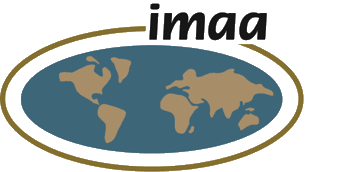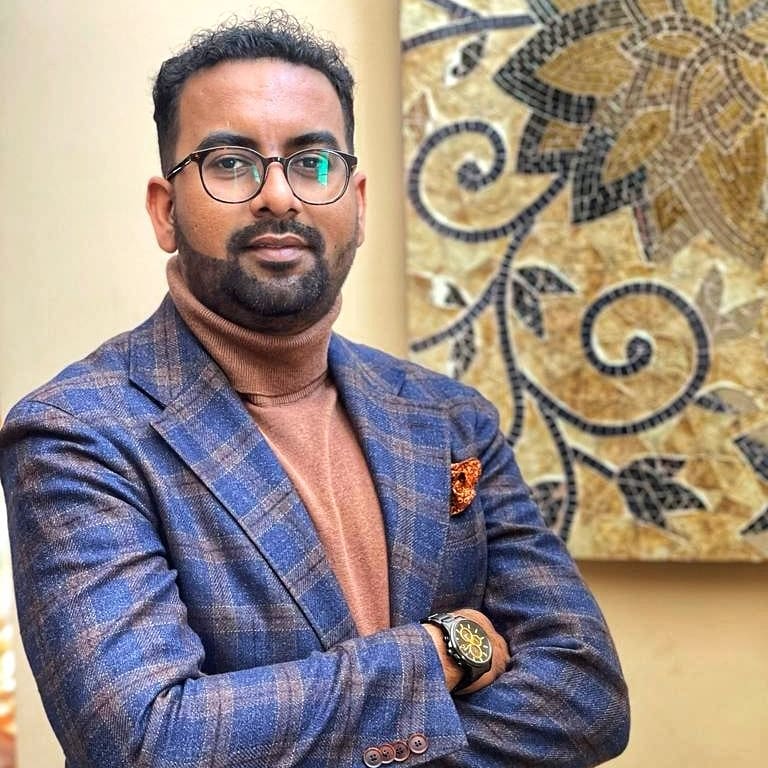
Mohamed's Story
June 23, 2021
Written by Susan Haskamp
Born in Mogadishu, Somalia, Mohamed grew up during the civil war and lived in extreme poverty. He has images from his childhood of watching people eat banana peels, animal skins, and dirty water because they had nothing else to eat or drink. From a young age, he knew if he wanted any opportunities, he would have to leave the country. He got that opportunity when a job recruiter came to his school. He decided to move to Dubai in the early 2000s for an accounting job opportunity. Over the next eleven years, he grew with the company and eventually became the general manager. During his time working at the company, he obtained a four-year degree. He did well for himself during his time working for the company. However, there was one obstacle that he would not be able to overcome. When Mohamed took the job as a teenager, the company sponsored his visa. This means that they could control what he could do and where he could go. He lacked the freedom to be the person he wanted to be and there was not a pathway to citizenship. Therefore, he would always be tied down to the company that he worked for. Because of the inability to truly achieve freedom, he decided he wanted to move to the United States to pursue education and opportunities that allowed him the freedom he wanted.
Getting a visa was challenging because of the corruption that occurred with the Somali government during the time he applied. He experienced many roadblocks during the process since the Somali government did not keep records of their citizens. Upon arriving in the U.S., he lived in Atlanta, GA for one year before moving to Green Bay, WI. They struggled to settle in the city, and the community college in the area did not accept his application. The college admissions office explained that only U.S. citizens could apply. The couple stayed in Green Bay for less than a year before moving to Rochester in 2011 where the rest of his wife’s family settled.
Mohamed applied for a job at IMAA and got hired in 2011. He also applied to be a student at RCTC, and they accepted him, despite being a non-citizen. Unfortunately, his degree from Dubai was not recognized (a common restraint for many immigrants who move to the United State with a degree from another country), but it did not stop him from achieving his dream. Mohamed still works for IMAA as the Language Services, Billing, and IT Manager, and he owns his own business in Dubai and Somalia called Albaaz Fashion. He gives back a percent of his profits to charity, and one includes purchasing Eid outfits for children in his hometown in Somalia.
More information about his business: @albaazperfumes or www.albaazperfumes.com
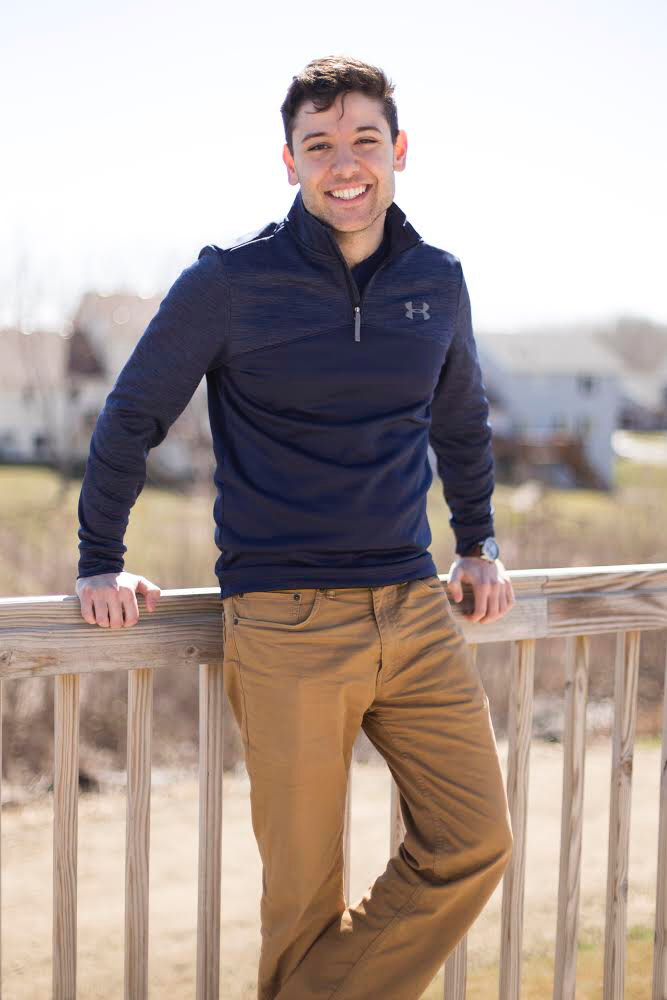
Rawhi's Story
June 30, 2021
Written by Natasha Sohni
Rawhi Said is a first generation Bosnian refugee. He and his sister were born in Bosnia, which was formerly a part of Yugoslavia. His mom was a school teacher and his dad was a pediatric surgeon. In the early 1990s, Slovenia and Croatia seceded from Yugoslavia, and then Bosnia followed. This caused the Bosnian genocide to ensue as Bosnian Serbs wanted control over the Bosniaks (Muslims) and Croats. At this point, Rawhi was just one year old. Due to the family’s living space residing within danger, they fled on buses and trains headed for the Bosnia/Croatia border. Upon reaching the Slovenian border, Slovenian border guards noted that only Rawhi’s father was permitted to pass due to his Jordanian passport, but the rest of the family could not do so. His father, not wanting to split up the family, decided to stay and they found themselves at a refugee camp in Karlovac, Croatia. Life in a refugee camp wasn’t easy, but since Rawhi’s father was a doctor and could provide help, they received more privileges than other refugee families.
The ultimate goal for his father was to reach the United States, knowing that this was the land of opportunity, Rawhi’s mother on the other hand did not want to do so due to negative perceptions of the country based on Hollywood movies, and the media. She wanted to reside in Jordan, instead, which is where Rawhi’s father’s family was living. Rawhi’s uncle was already in the United States by this point and was able to send papers to sponsor the rest of the family. Fortunately, they arrived in Rochester, Minnesota, in December of 1993. Rawhi had turned two a couple of months prior to this.
The Sisters of Assisi Heights assisted Rawhi’s family in their resettlement. They did not know anything about Rochester, or Minnesota for that matter, but they were able to stay in the Assisi Heights guesthouse for their first few months. This was the first time in a while that the family was living in normalcy. They were surprised by the generosity of this new community after being treated so terribly because of their identity. They did not have to live in fear of shootings, bombings, or explosions.
With securing an apartment, Rawhi’s father received a job as an interpreter at the Mayo Clinic, and Rawhi’s mother received a job at Head Start after learning English. Rawhi and his sister have a close relationship even though they are 16 years apart, and she now works at the Mayo Clinic. He was able to attend college at Winona State University and has since received his Master’s in Business Administration. He now works as the Community Engagement and Diversity & Inclusion Program Manager at IMAA. His wife is also Bosnian, and arrived in the United States in 2001.
Rawhi chooses to share his story because he does not want the Bosnian refugee experience to be erased. People need to be aware of the hard truths and keep these stories alive.

Vangie’s Personal Story
Wednesday, June 16, 2021
Written by Susan Haskamp
Vangie Castro is a community organizer, social justice warrior, and diversity, equity, and inclusion consultant in Rochester. Despite the challenges that arise with being a queer, gender non-conforming, brown immigrant, they are happy with how far they have come and how many people whom they have been able to help along the way. Vangie’s drive to do what they do is inspired through their own personal experiences and struggles as a child. Born in Zamboanga City, Philippines in 1974, Vangie came to the United States at the age of four after their father sought political asylum from the Filipino government. Vangie’s father had a cousin who lived in California, so they moved to San Francisco and began rebuilding their lives.
Vangie’s dad worked as a public accountant, and their mom worked in housekeeping. Their father’s degree was one of the few that transferred to the United States. Most immigrants face the obstacle of having to restart their education because the U.S. does not recognize degrees outside of the country. They accessed resources through Catholic Charities, the Filipino American Association, connections made through their dad’s job, and the community they lived in.
Being as young as Vangie was, they did not think much about the struggles their family experienced, both at home and in school. The neighborhood in which they grew consisted of a majority of immigrants, but knowing others with similar experiences did not make these experiences any easier. Their family struggled to integrate and assimilate into a new culture that is not always accepting of new Americans. As Vangie got older, they became more aware of the differences and barriers that immigrants confronted including immigration status, language, different accents, and lacking adequate resources or not knowing where to find resources available to them. The stereotypes that immigrants are lazy and steal jobs remain puzzling to Vangie as they experienced and witnessed the opposite. “We don’t even know the system, how can we take advantage of it?”
Vangie’s parents pushed education, and after high school, they went to community college before transferring to a four-year university. One of the reasons Vangie works with youth today is to provide the guidance that they never received while growing up themself. Vangie recalls friends who went down a different path that did not involve college. They note that a college education can “totally change your story.” Vangie’s lack of guidance is not because their parents did not care – they did not have the privilege of understanding a system designed for White, English speaking Americans. Vangie navigated the system alone, making a lot of mistakes along the way. It is often the little things that are most important such as understanding how credits work, the importance of a GPA, and where to go and to whom you can trust to talk with that most immigrants do not have the luxury of being able to navigate.
“If you haven’t had to experience that world in which everyone else around you speaks the same language, and has the same culture and grew up the same way you did, you don’t have to think about how to code switch or adjust or acclimate to your environment. You just are. The environment acclimates to you.”
The education system is not the only thing that Vangie had to learn how to navigate. Vangie decided to come out at a time when the AIDS epidemic was prevalent causing vast amounts of heightened backlash against LGBTQ+ populations. Vangie had friends who came out before them and observing their experience helped with their decision. However, they note, “you have to come out to yourself before you can come out to anyone else.” They knew it was not going to be easy, but they would not be happy if they had to hide their identity forever. They would have loved to have a party with balloons and streamers to celebrate their coming out, but it was not quite like that. Their parents supported their coming out, but they also worried more for their safety and well-being.
Coming out helped Vangie to better their own understanding of their sexuality and gender identity. Support groups for LGBTQ+ folks were nonexistent. Vangie co-founded one with a group of friends so others had support like they did. They shared experiences, figured out their identities together, and offered support whether one came out or not. Vangie believes every community needs a space that offers a support system and network that help folks find a sense of belonging in a world that tells you that you are an outsider.
Identifying both as an immigrant, queer, and Person of Color, Vangie understands first-hand the intersectional struggles. “You have to create a path where there is no path…every space that I go into I’m always the only person that looks like me. When I go visit the Philippines, even though everybody looks like me, I’m still a foreigner in my own country. I’ve never really felt at home.”
Vangie has faced many experiences of not feeling respected, valued, or welcomed. One of the ways Vangie works through the challenges of carrying multiple marginalized identities is through attending therapy. The benefits they have received through the experience contributes to the resilience they have today. The stigma of mental health and therapy are prevalent in many communities. However, Vangie believes we could all benefit from therapy. “The work is on us, us individuals, to help heal ourselves because it helps heal the community.”
Their drive, passion, instilled values, and personal therapy led them to this point that they are at today – being a leader, advocate, and mentor. They want to create pathways for young people who have different identities outside of the norm to thrive and find their way. Why do they do what they do? Their simple answer, “Why not? Who else is doing it?” Vangie is more than committed to making the community a better place for ALL.
For any youth who are struggling with their own identity, they offer a few words of advice including:
1. Find someone to whom you can talk and who makes you feel safe. This person may or may not be in the LGBTQ+ community.
2. The people from whom you expect the least support can be the ones to support you the most. Some may surprise you and not support you. For your own safety and mental health, you should not just suddenly come out. Talking to someone first will help you to create a plan.
3. There is someone out there who can help to guide you.
4. It is okay to find help, to get support, to go to therapy and have someone help you to do the work. There is nothing wrong with you. It is to help you guide through the tough times in life, help you to find a plan, and find a sense of healing.
We all have a special gift, talent, or strength to offer to the world. Moving from a community that is welcoming of all identities takes more than just statements. We must all reflect on how we, as individuals, and communities can offer the guidance, support, and resources for new Americans of all identities to be able to participate in systems to their fullest abilities without feeling like they are alone. Once we all realize that immigrants and LGBTQ+ folks contribute to the community and see them simply as human, we can work toward a future of inclusiveness.
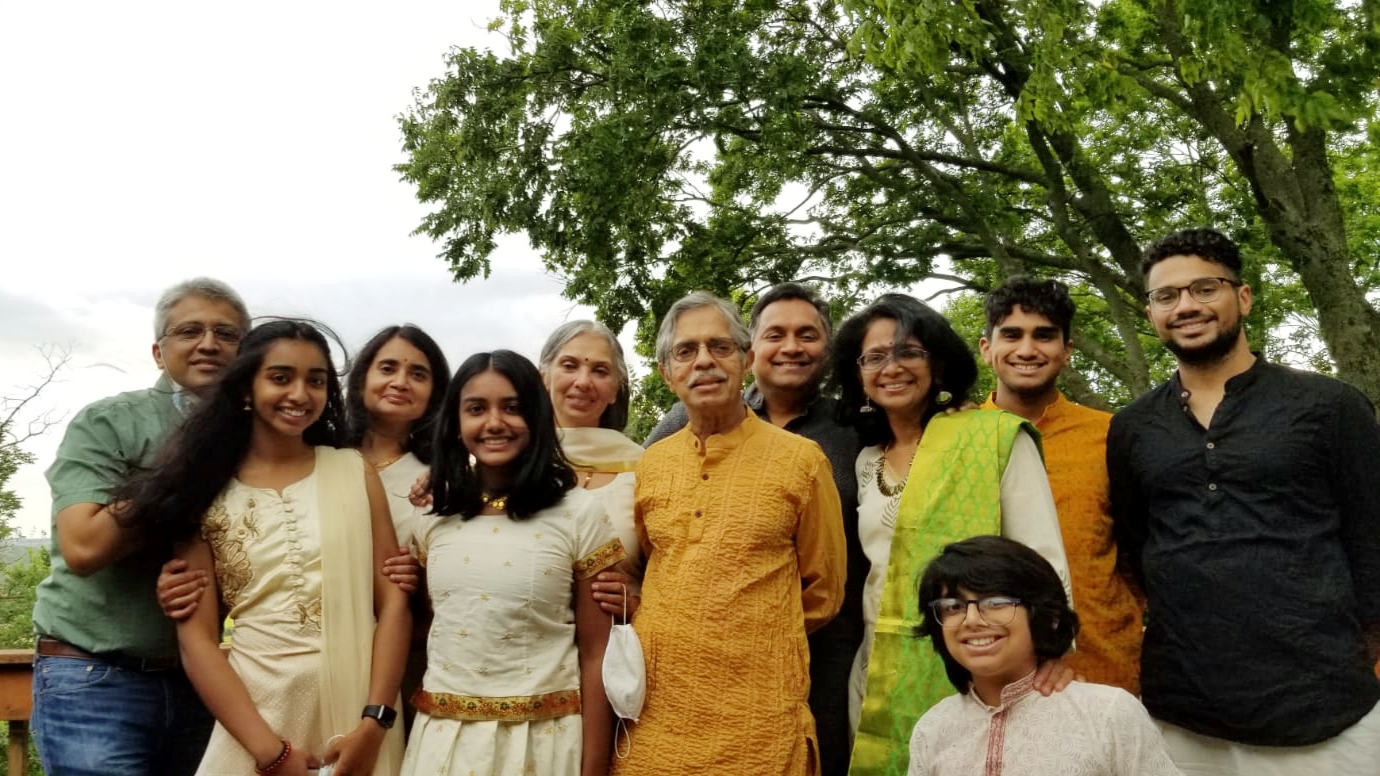
Nisha's Story
June 2, 2021
Written by Susan Haskamp
The imagery of the mountains and landscape hit her on the drive from California to Minnesota. She realized that she can create opportunities for herself and that anything is possible in America. The feeling of enlightenment sticks with her to this day as a resemblance of her first feelings of freedom in a country that left her feeling lost when she first moved to the United States.
Nisha obtained her master’s degree and teaching license in India. She and her husband decided to move to the U.S. in 2000 after living in Dubai for a few years. Her husband received an H1-B visa, a type that is meant for special occupations. Nisha came to the U.S. with an H4 visa, a dependent spouse visa of an H1-B holder. An H4 visa holder was not allowed to work. It was not until 2015 that President Barack Obama signed legislation that allowed H4 visa holders to apply for jobs. Nisha took advantage of the opportunity, which we will get to later. Because of her visa limitations, she spent most of her days in a small apartment with her son, an experience that tested her mental and emotional health. The experience became so defying that Nisha and her husband almost decided to move back to India. However, they decided to stay and stick it out.
Let’s return to the image of the mountains and landscape. Nisha’s husband soon got a job offer in Minnesota. The family of three made a trip to the Land of 10,000 Lakes for the next few months. The moment of enlightenment continued after arriving in Minnesota. Nisha felt more settled and inspired to explore the city. By this time, her two older sons were in school. She found a volunteer opportunity at Catholic Charities assisting refugees with resettlement and integration into the community. The experience opened her eyes more to the system, and the critical role that volunteers play. Her experience with Catholic Charities and other organizations helped to meet new people, which led to new and inspiring opportunities.
In 2012, after her youngest son started Kindergarten, she went back to school to pursue her degree in Social Work at Winona State University – Rochester. Her advisor suggested that she should do her internship at IMAA, with the Victim Services Program. Nisha has been involved with IMAA ever since. After graduating with her degree, she was hired on to continue working in the Victim Services program, where she currently manages the program. Nisha’s commitment to IMAA’s mission is reflected daily in her work. She feels fortunate to have found her place in Rochester and is driven to empower women to overcome their circumstances and become anyone they imagine themselves to be.
She says, “This job gives me an opportunity to address my own strengths and weakness. I feel that the struggles and woes of humanity are the same anywhere- whether it is in the East or West. It is not always easy to find solutions to human woes and most often, the outcome may not be what you expect. You need to think out of the box and be creative.”
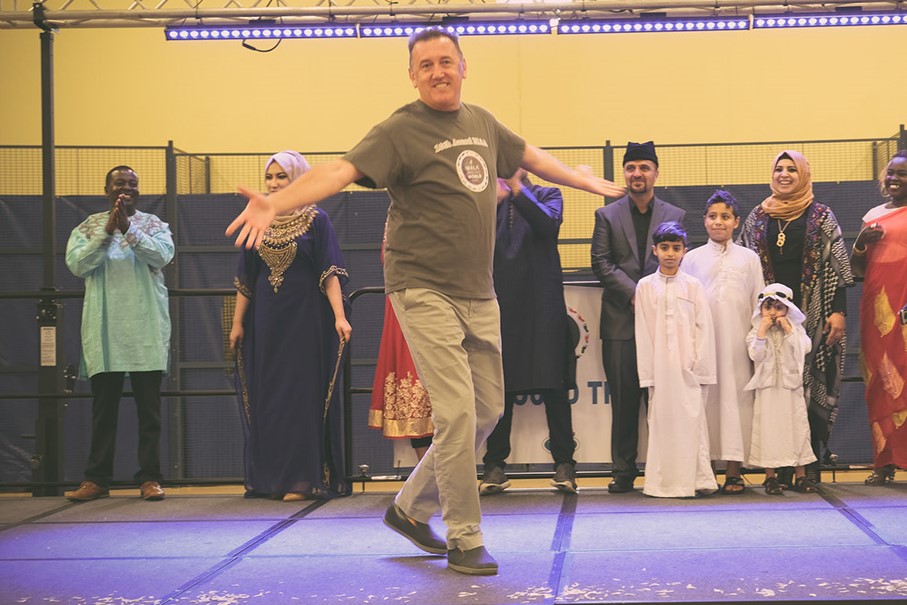
Armin's Story
June 8, 2021
Written by Natasha Sohni
Armin Budimlic is a first generation Bosnian refugee. He was born in former Yugoslavia in 1964. He was raised by a working class family in which even owning a bicycle was a luxury. After completing high school, all able-bodied males were required to participate in the military for at least one year, so Armin was deployed to Croatia. He trained for three months here, and then completed the other nine months of his service in the Republic of Slovenia.
Armin studied mechanical engineering after his time in the military and then received a job in Slovenia through which he had assignments in Yugoslavia, the Middle East, and Africa. He met his wife in 1987 and they married in 1988. Their first child was born in 1989.
The war in Bosnia began in April of 1992 and Armin was on an assignment in Croatia. He was unable to return to his hometown to be with his family. He and all of his siblings lived on the same street in Bosnia prior to the war, and his wife and daughter were residing there as well. For the next few months, Armin had little contact with his family and lived with the uneasiness of not knowing what would happen to them. With the help of the United Nations and other humanitarian organizations, he was able to send messages and paperwork to his wife to ensure that he family could leave Bosnia. For the next two years, they lived in Croatia. Armin and his wife had a son during this time.
In June of 1994, Armin’s family was approved to immigrate to the United States. He remembers being welcomed by about fifty people as he arrived in Rochester, and Catholic Charities played a large role in resettling his family. Arriving in the United States was daunting as Armin did not know if the assistance that his family was receiving (housing, furniture, etc.) was just temporary. At this time, Armin spoke some English while his wife did not speak English at all. They learned the language through working at Assisi Heights and interacting with people in the area.
Armin’s brother, who had arrived in the United States previously, was able to set up an interview for Armin to be a painter at Assisi Heights. Armin began painting full time while his wife worked in the kitchen at Assisi. Within a few months, they had saved enough money to buy their first car, and within a few years, Armin began working at IMAA as an employment counselor. He had never worked with a computer before and found it fascinating. He felt at home with his work at IMAA and soon became a manager.
Armin also graduated with his Master’s degree from St. Mary’s University in 2009 after realizing that he wanted to grow in his skill sets regarding his job. He was promoted to Associate Director of IMAA, and then moved to work for Olmsted County in family support and assistance in 2013. When the previous Executive Director retired in 2018, Armin interviewed for the position. He serves in this role currently.
While Armin believes that more work needs to be done in terms of inclusion and equity, he believes that the resettlement agencies in Rochester are very welcoming. His experiences with preparing for the war and studying mechanical engineering back home, as well as his family’s journey to the United States and settlement, still impact and inform his life today.
Donate Today!
We need your support to be able to continue building bridges between cultures.
Have questions? Contact us today!
If you would like to request more information about IMAA’s Diversity and Inclusion Training, please submit a request on the Diversity and Inclusion page
If you need an interpreter, please complete the interpreter request form found at the top of this page under “Request an Interpreter”
Get In Touch
Address:
2500 Valleyhigh Drive NW
Rochester, MN, 55901
Phone: (507) 289-5960
Fax: (507) 289-6199
Business Hours:
Monday – 8:30am-5pm
Tuesday – 10:00am-5pm
Wednesday – 8:30am-5pm
Thursday – 8:30am-5pm
Friday – 8:30am-5pm
Saturday and Sunday – Closed
